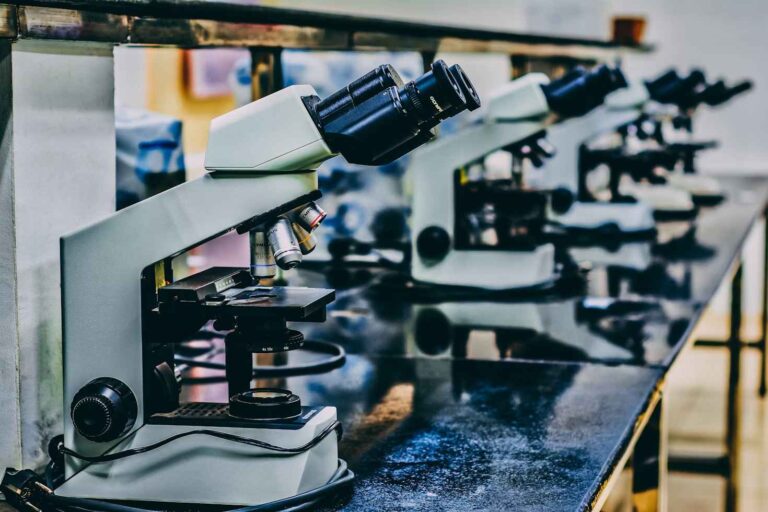Recovering from addiction is a journey that demands not just emotional resilience but also physical and mental well-being. While rehab programs typically emphasize therapy, support groups, and behavioral changes, one crucial element often overlooked is nutrition. A balanced and nutritious diet is not just a source of energy; it’s a powerful tool that can significantly impact the success of long-term recovery. Nutrient-rich foods not only aid physical healing but also support mental clarity, focus, and emotional stability, helping individuals sustain sobriety for the long haul.
The Role of Nutrition in Recovery
Addiction takes a toll on the body, often leading to deficiencies in key nutrients and disruptions in metabolic health. Substances like alcohol, opioids, and stimulants can deplete essential vitamins and minerals, impair liver function, and disrupt gut health. These effects often contribute to fatigue, irritability, anxiety, and cravings, all of which can undermine recovery efforts. As individuals begin their rehab journey, nourishing the body with the right nutrients becomes critical for rebuilding physical health and supporting the emotional and mental balance necessary for a sustainable recovery.
Proper nutrition provides the building blocks the body needs to repair tissue, strengthen the immune system, and restore balance in neurotransmitter production—important for managing stress, mood, and cravings. By focusing on specific nutrients that support brain health, energy levels, and emotional stability, a balanced diet can reinforce the foundations laid in rehab, making it easier to manage the challenges that come with maintaining sobriety.
Key Nutrients for Rehab Success
Certain nutrients play a particularly beneficial role in supporting individuals through the physical and emotional aspects of recovery. Let’s explore some of the most essential ones:
Proteins for Muscle Repair and Neurotransmitter Support
Protein is essential for repairing tissues damaged by addiction and for supporting muscle strength, which is often compromised during substance abuse. Proteins are also rich in amino acids, which the brain uses to create neurotransmitters like serotonin and dopamine, responsible for mood regulation and feelings of well-being. Foods like lean meats, eggs, tofu, and legumes are excellent sources of protein that aid in both physical and mental healing.
Omega-3 Fatty Acids for Brain Health
Omega-3s, found in fish, chia seeds, flaxseeds, and walnuts, are essential fats that promote brain health. These fatty acids are particularly beneficial for improving mood and cognitive function, which can be affected by the chemical imbalances common in addiction. Omega-3s help reduce inflammation and may even support the regeneration of brain cells, promoting mental clarity and reducing the risk of depression or anxiety that can sometimes arise during recovery.
Complex Carbohydrates for Sustained Energy
Carbohydrates are the body’s primary energy source, but not all carbs are created equal.
Complex carbohydrates, such as those found in whole grains, vegetables, and legumes, provide a steady release of glucose, helping maintain balanced blood sugar levels and reducing mood swings. These foods can counteract the irritability and energy crashes that might otherwise lead to cravings or emotional lows, thus promoting better emotional stability during rehab.
B Vitamins for Energy and Cognitive Function
Addiction often depletes the body’s B vitamins, which are crucial for energy production,
cognitive function, and stress management. Foods rich in B vitamins, like leafy greens, eggs, and nuts, can help individuals in recovery regain their energy levels, improve concentration, and reduce stress. Including B vitamins in daily meals can also aid in managing cravings by balancing stress and enhancing mood.
Antioxidants for Immune Support
Antioxidants, found in colorful fruits and vegetables such as berries, carrots, and spinach, help repair cellular damage caused by substance abuse. They also support immune health, reducing the risk of illness that can often disrupt recovery. A diet rich in antioxidants can provide the body with the defense it needs to rebuild and sustain health over time.
Structuring a Healthy Meal Plan for Recovery
Creating a balanced meal plan is a practical way to integrate these nutrients into daily life. An effective recovery-focused meal plan should prioritize whole, minimally processed foods while balancing proteins, complex carbs, and healthy fats in each meal. Here’s an example of a day’s worth of meals designed for sustained energy, mental clarity, and emotional balance:
- Breakfast: Start with a bowl of oatmeal topped with chia seeds, berries, and a handful of nuts. Oatmeal provides complex carbs for lasting energy, while chia seeds and nuts offer healthy fats and protein for mental clarity.
- Lunch: A lean protein, like grilled chicken or tofu, served with a side of quinoa and a
salad of mixed greens, carrots, and cherry tomatoes. This meal is packed with protein, fiber, and vitamins to maintain energy and promote emotional stability. - Dinner: Salmon or a plant-based alternative like lentils paired with sweet potatoes and steamed broccoli. Salmon offers Omega-3s, while sweet potatoes provide complex carbs and fiber, and broccoli adds a dose of immune-boosting antioxidants.
- Snacks: Greek yogurt with sliced banana, hummus with raw veggies, avocado and toast, or a handful of almonds. These snacks help manage hunger and maintain blood sugar levels throughout the day.
Hydration is also critical; drinking enough water or adding herbal teas can support digestion, mood, and cognitive clarity.
Challenges in Finding Nutrition-Focused Rehab
Unfortunately, not all rehab programs prioritize nutrition. Many focus primarily on therapeutic practices, overlooking the critical role of diet in the healing process. This can make it challenging for individuals to find a rehab program that truly supports their nutritional needs. For those who wish to incorporate a balanced diet into their recovery plan, it may be worth seeking out programs that emphasize holistic wellness, which often includes diet as part of their treatment model.
In cases where a nutrition-focused program isn’t available, individuals can still make an effort to incorporate healthier eating habits into their daily lives. Consulting with a nutritionist or dietitian, if accessible, can help individuals develop a personalized meal plan that meets their unique needs in recovery.
Long-Term Benefits of a Nutritious Diet in Rehab
The road to recovery is lifelong, and building healthy habits early on makes it easier to maintain sobriety in the years ahead. A balanced diet not only supports immediate recovery but also helps individuals avoid relapses by promoting emotional stability and overall wellness. Nutritional choices have the power to boost energy levels, stabilize moods, and provide the mental clarity needed to face daily challenges, fostering resilience and endurance.
In summary, while therapy and support networks are indispensable in rehab, a nutritious diet serves as the foundation of sustainable health and sobriety. Prioritizing whole, nutrient-dense foods can significantly improve physical and mental resilience, setting individuals up for a healthier, more stable future. By making mindful choices about food, individuals in recovery can empower themselves on their journey to lasting sobriety.















